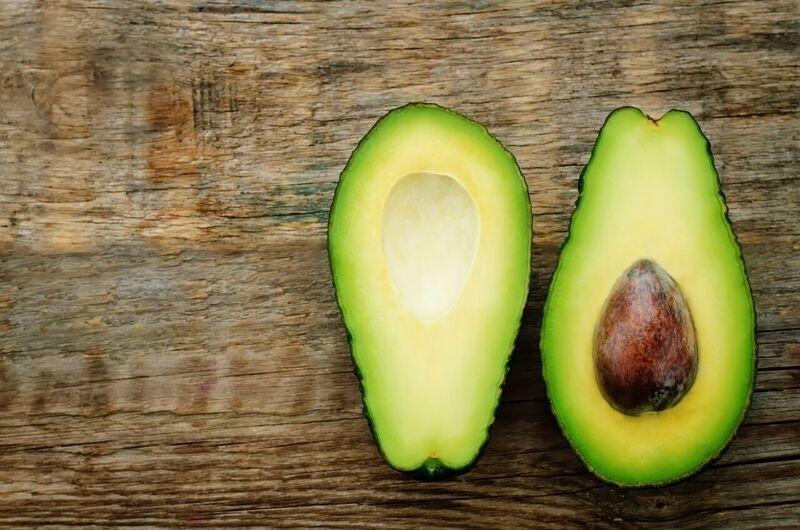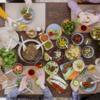Dietary Tips and Guidelines for Ulcerative Colitis

Food does not directly cause ulcerative colitis to develop, but there are certain foods that can cause irritation to the colon and spark a flare-up. Following a diet is a tool to contain the symptoms of Ulcerative colitis and bring down the discomfort. Seeking guidance from a nutritionist or dietician will also help.
As you already know, ulcerative colitis is the result of inflammation of the inner lining of the colon. This inflammation eventually leads to the formation of ulcers, which subsequently lead to further complications such as abdominal pain, bleeding, and pus in the stool. To stop all this from happening, it is important to watch what you eat in order to prevent irritation of your colon and triggering ulcerative colitis. Anyone who may be at risk of ulcerative colitis either due to a family history of the condition or someone in remission from the same condition must watch what they eat to prevent an exacerbation of the problem.
The Ulcerative Colitis Diet
Unfortunately, there is no single diet that is known to work on everyone with UC. The problem is, everyone’s body reacts differently to different substances, and certain foods can cause a flare-up in one person but not the other and vice-versa. The bad news for anyone suffering from UC is that they can’t go around having a taste of everything and take notes of what seems to be causing them problems.
You doctor would want you to consume foods that will reduce the discomfort of UC. Even if your body gets the necessary amount of proteins and minerals, along with the fluids and salt that you need, still your doctor will advise multivitamin supplements to your medication since chronic diarrhea and rectal bleeding can lead to certain nutrient and mineral deficiencies. Pro-biotics are beneficial bacteria present in fermented foods. Consuming yogurt and curds without adding sugar works best since they are gentle on the stomach lining. You may sweeten the yogurt with a little honey. Foods rich in beta-carotene and vitamin C will also help. Egg omelets or hard boiled eggs will provide sufficient nutrients and proteins to the body and help in reducing discomfort in the abdomen. Avocados help in fueling the body in a healthy way. Nuts in limited quantities work wonders. However, they should be consumed as a paste rather than as a whole. Cooked and pureed apple will greatly reduce the discomfort and limit the diarrhea. Sugarless oatmeal with a pinch of cinnamon will be good on the digestive system as well.
Instead of eating raw vegetables, vegetables cooked soft should be consumed since they will not be hard on the digestive system. Fruits like bananas are rich in potassium and can be taken. Carbohydrates in the form of soft rice and soft oatmeal can also be consumed in limited quantities.
How do you know what to avoid? The list below is of some of the foods which are often irritants to the colon.
- Alcohol
- Caffeine
- Carbonated drinks
- Spicy foods
- Meat
- Fiber-rich foods
- Foods with Sulphur
- Raw fruits and vegetables
- Dried foods including beans, fruits, legumes, etc.
These are foods which cause irritation to the bowels of any person, and this irritation can lead to ulcerative colitis in someone already at risk.
Along with the above, Legumes and beans have to be avoided since they cause bloating and increase gas in the abdomen. Dairy products can cause lactose intolerance and should be restricted. Corn and mushrooms can be hard to digest and hence should be avoided. Fatty meats can be bad for the digestive system especially in patients with UC. Avoid too much spice on the foods that you take in. Too much spice consumed can cause irritation in the bowels. Rich and high-fat condiments, sauces, and pickles cause the symptoms to increase making the patient very sick. Sugar and chocolate can contribute to the discomfort, cramping, and increase the number of visits to the bathroom. A small piece to satiate the craving will be fine though. Soda and carbonated drinks can make you feel further bloated and hence should be avoided totally.
You may find some more foods along the way that seem to aggravate your symptoms of ulcerative colitis, and it will be important to take note of them too. The idea is to keep track of everything you eat and notice how it makes you feel, whether good or bad. It is also important to experiment with different preparation techniques to help prevent symptoms. For example, steaming vegetables first may make the digestion process easier.
What to Do About Fibers?
All in all, you still have to remember to maintain a healthy diet which includes all nutrients, including fiber. Fiber provides ‘grip’ for food moving down the gut and helps keep your stool solid. Unfortunately, this can be both good and bad for you. Too much fiber and you stand to irritate your colon, too little of it and you may exacerbate your diarrhea. The recommended amount of fiber is about 10 to 15 grams in a day. This will keep your stool moderately solid without causing any irritation.
What Else?
To avoid straining your colon too much, have small meals all through the day instead of taking 3 big meals for breakfast, lunch, and supper. This will take the load off your digestive system and reduce irritation. Also, remember to take water to keep yourself hydrated. Diarrhea leads to dehydration, which may cause ulcerative colitis to worsen, so remember to keep yourself hydrated. Fluid intake in encouraged in patients with ulcerative colitis so that the intestine lining can be clear and toxins flushed out.
You might also lose minerals and vitamins which should be absorbed from food, so you might also have to take some supplements.
Bottom Line
to keep the ulcerative colitis symptoms from aggravating, you are to have a planned diet with very little oil, drink 8 to 10 glasses of water every day, eat small meals every 3 to 4 hours, increase probiotic products to improve the digestive system, and have regular checkups with your doctor, taking the prescribed medicines and vitamin supplements regularly.
















